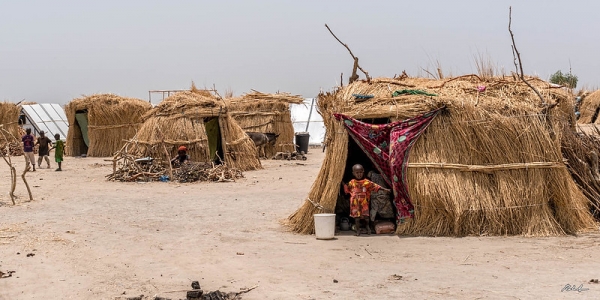In recent weeks, the ongoing attacks in the eastern region of Burkina Faso have intensified, exacerbating an already dire humanitarian situation. The communes subjected to attack were Mansila, Kantcari, and Sempelga. The consequence of such attacks is that millions of individuals have crossed the border in the attempt to find refuge in the neighbouring country of Niger, particularly in the city of Téra, in the Tillabéri region. Téra has also become a target for the same non-state armed groups.
The UN Refugee Agency (UNHCR) has observed that the "highly volatile" security situation along the Niger-Burkina Faso border is attributable to attacks between State and non-State actors, resulting in 3,068 Burkinabè asylum seekers crossing it by June 30.
The political situation in Burkina Faso has been characterised by instability since 2022, when two military coups occurred. In January, Lieutenant Colonel Paul-Henri Sandaogo Damiba deposed President Roch Marc Christian Kaboré. However, Damiba's tenure was brief, as he was deposed in a second coup in September 2022 by Captain Ibrahim Traoré. As reported by the New York Times, since assuming power, Taorè's government has sought to strengthen its relationship with Russia. This has involved the deployment of Russian military advisers and the conscription of approximately 50,000 Russians to serve in his army, resulting in a notable increase in human rights violations against local populations. Furthermore, Taorè has been censoring the press, initiating conscription, and imprisonment and disappearances have become a consequence for those who do not comply. Nevertheless, thus far, Captain Traoré has been unsuccessful in his efforts to combat the extremists affiliated with ISIS.
Iin its statement of July 22, 2024 UNHCR affirmed that the agency is currently engaged in collaborative efforts with local authorities, including the Departmental Civil Status Registry (DREC), the Regional Directorate of the Ministry of Humanitarian Action, and the International Organization for Migrants (IOM), as well as its partners, with the objective of devising solutions to address the humanitarian crisis.
One of the actions undertaken was a pre-registry for 470 households (3,068 individuals) for asylum, accompanied by the provision of cash assistance to meet immediate needs. This has become a crucial element in the context of Niger, particularly in the Tillabéri shelter, where 223,400 internally displaced individuals from Niger and at least 36,500 Burkinabé asylum seekers are currently residing.
It is clear that primary humanitarian concerns in the area persist in sheltering and food distribution, given the challenging circumstances under which these individuals are residing. It is also imperative to enhance the existing water infrastructure, which is unable to meet the demands of the entire population.
To read more, please visit:
- https://news.un.org/en/story/2024/07/1152396
- https://www.unhcr.org/
- https://www.nytimes.com/2024/07/25/world/africa/burkina-faso-extremists-coup.html
- https://reporting.unhcr.org/niger-flash-update-situation-t%C3%A9ra
- https://www.iom.int/







